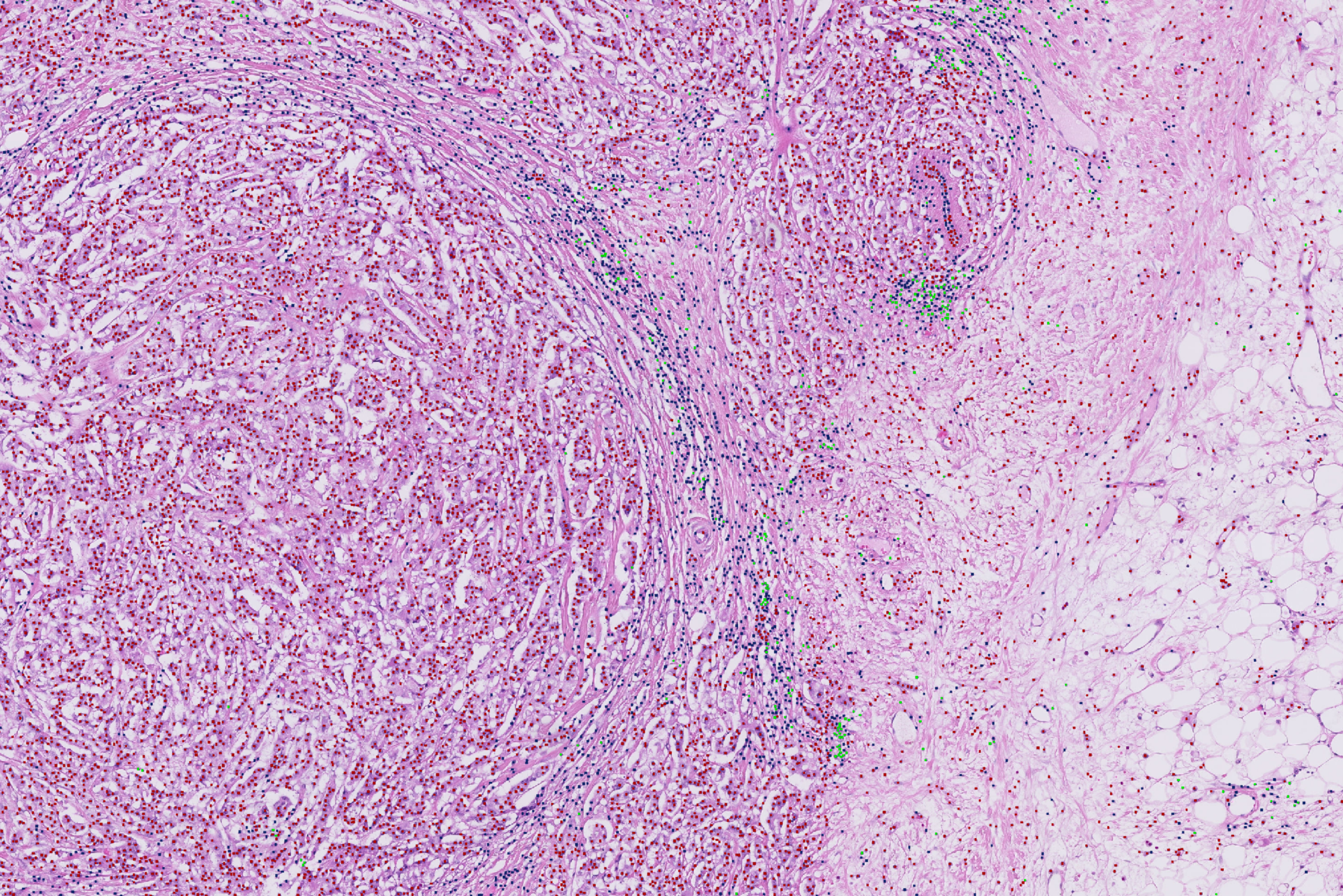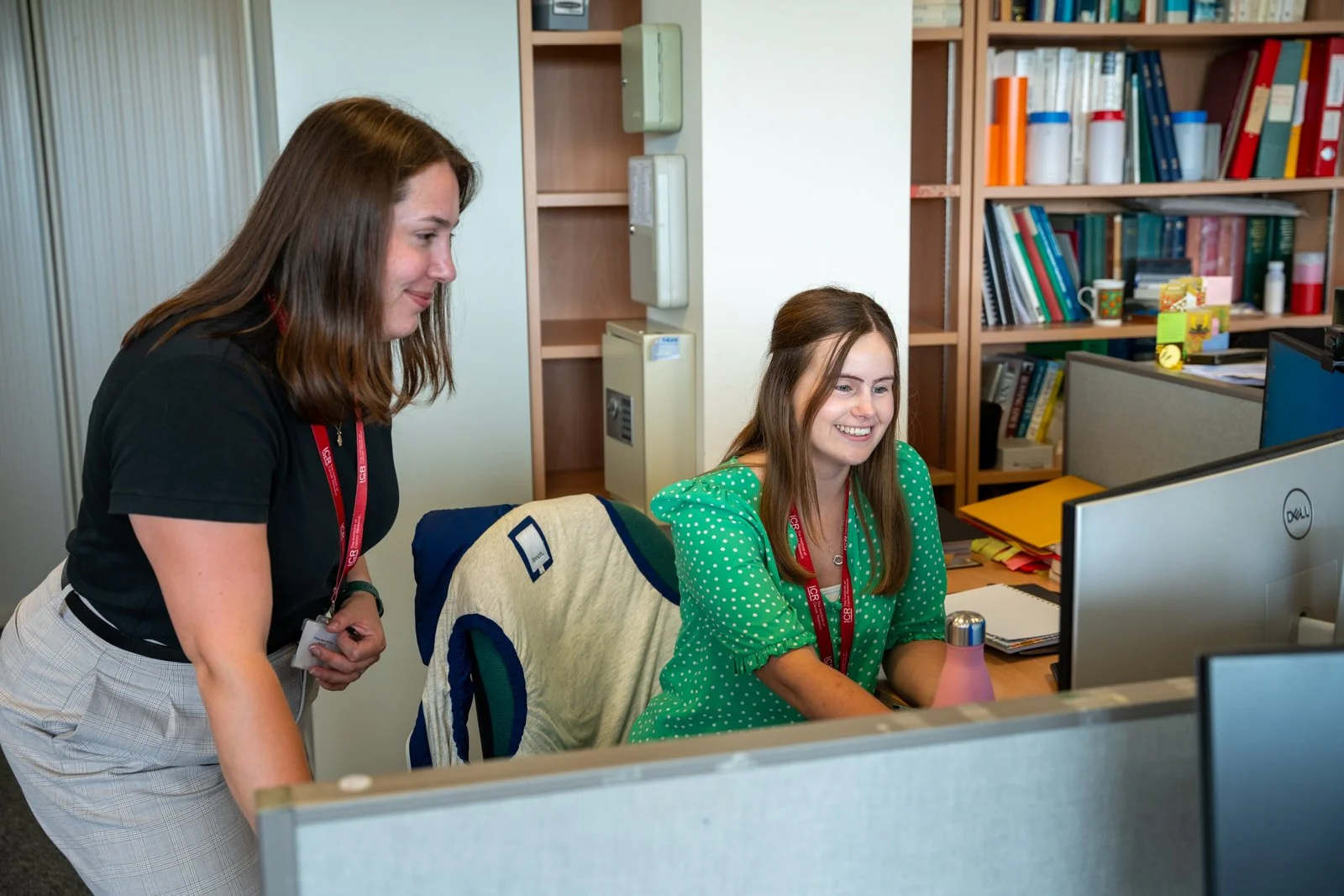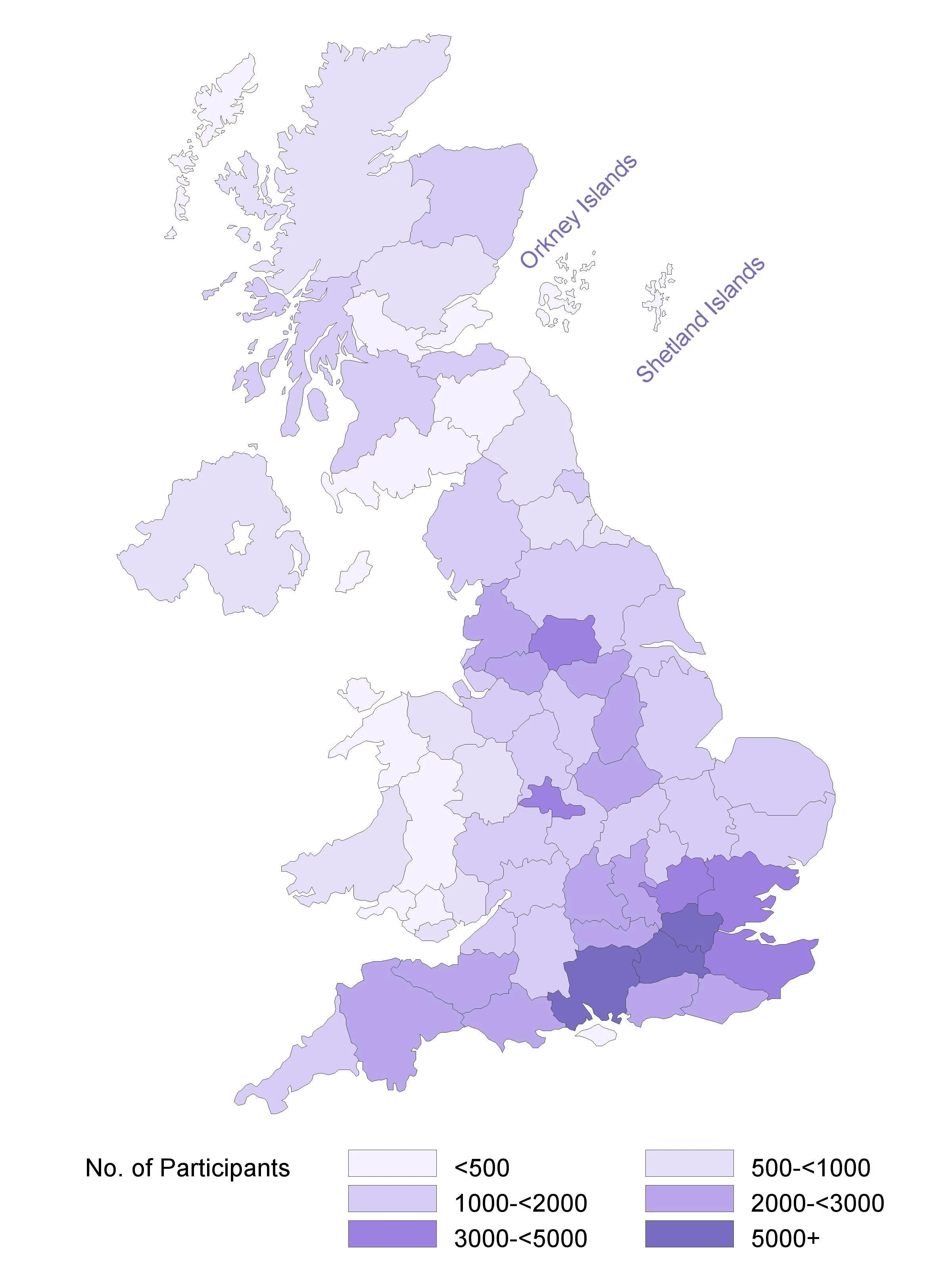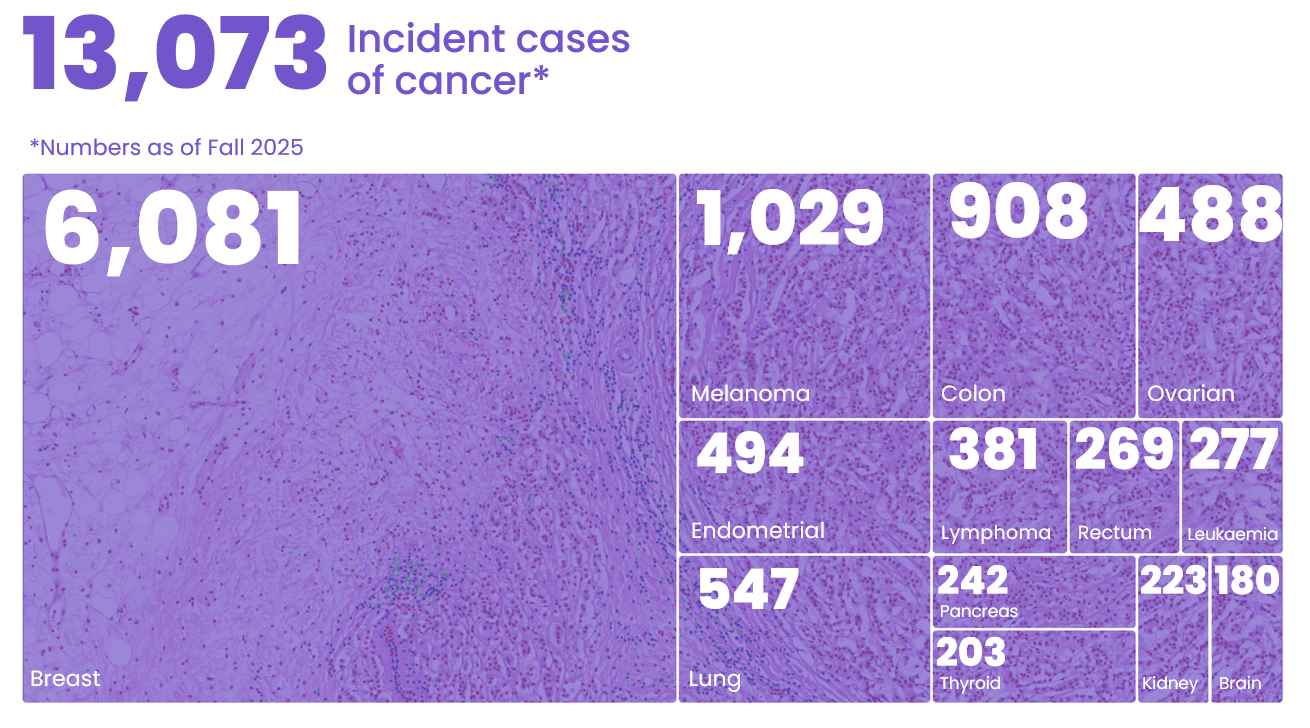
For Researchers
For over 20 years, the Breast Cancer Now Generations Study has collected high quality data from participants through questionnaires, NHS electronic medical record linkages, pathology reports, medical imaging, and analyses of blood, tissue, and urine specimens.
Study Population
Over 110,000 women across the UK were enrolled in the Generations Study from 2004 to 2011. The figures below show participant age and geographical distribution at study entry.
At recruitment, nearly half of the cohort (49%) were aged of 45-64, with 42% of the cohort younger and 9% older. Geographically, 89% of participants resided in England, 4% in Wales, 7% in Scotland , and 1% in Northern Ireland . Compared to the national population, the cohort is overrepresented by women of higher socio-economic status, of White ethnicity, and those residing in Southern England. To enhance the generalisability of research findings to more diverse populations across the UK, comparisons with national data and other cohorts are conducted.
The figure below shows the number of women in the Generations Study diagnosed with cancer after recruitment, as of fall 2025.
Study Data and Biospecimens
Documentation for the Generations Study, including participant consent forms, information booklets, questionnaires, summary data, and an overview presentation can be found on the Generations Study GitHub.
-
All participants completed a recruitment questionnaire when they joined the study, with the majority (97%) doing so between 2004 and 2009. Follow up questionnaires were subsequently sent approximately 2, 6, 9, and 13 years after recruitment, with additional follow-up rounds planned. The questionnaires collect information on participant demographics, lifestyle, reproductive history, anthropometrics, medical history, family history of cancer, and other factors known or suspected to be linked to cancer risk.
The first and second follow-up questionnaires were administered on paper, achieving response rates of 99% and 97%, respectively. The third and forth questionnaires used a mixed format of online and paper surveys, with response rates of 96% and 83.5%, respectively. The fifth questionnaire is currently being administered.
-
92% of participants who completed the recruitment questionnaire also provided blood samples. These samples were processed and stored as buffy coat and plasma for genetic and biomarker studies. A small subset of participants also provided a second blood sample during the study.
-
We have collected urine samples for a subset of pre and post-menopausal women who were not taking oral or other hormonal contraceptives at the time of collection.
-
We have obtained whole genome genotyping chip data in nested case-control studies of incident breast and ovarian cancer. We have calculated polygenic risk scores (PRS) for cases and controls using this data.
-
We have performed assay measurements for a nested breast cancer case-control dataset for oestradiol, testosterone, C-peptide, prolactin, sex hormone binding globulin, estrone, estrone sulphate, progesterone, insulin-like growth factor-1, leptin, and anti-Müllerian hormone (AMH).
-
We have collected participant physical activity data (24 hour continuous 8-day triaxial 100Hz accelerometery) for a smaller subset of the Generations study. Data collection was suspended during the Covid-19 pandemic, but has restarted with a focus on participants with a previous diagnosis of breast cancer.
-
We have collected and analysed screening mammograms for a nested case-control study within the cohort. We are currently expanding this collection to include serial screening mammograms from 50,000 women of screening age in the cohort.
-
We obtain information on cancer diagnoses through participant self-reports and national cancer registries, and information on deaths from reports by family members and national death registries.
-
We collect pathology reports and paraffin-embedded tumour blocks for breast and ovarian cancers to create whole section H&Es, Tumour Microarrays (TMAs) and tissue cores for molecular assays. We also collect pathology reports and diagnostic H&E slides from benign breast diseases.
Data Access
The Generations Study is committed to responsible data and biological sample sharing to advance scientific understanding of breast cancer and related diseases. Researchers can enquire about access to data and biological samples for not-for-profit research purposes. Access is governed by a review process to ensure that use of resources is aligned with participant consent, privacy standards, and long-term research priorities.
Scope of Access
The study is open to enquiries from scientists about the potential use of data and biological samples for not-for-profit research purposes.
Data available for sharing include survey data, health outcomes, genomic and biomarker data, imaging-derived data, and registry-linked data (subject to provider permissions and restrictions). Find out more about data collected in the study.
Biological samples include baseline buffy coat and plasma samples, and breast tumor tissue microarrays (TMAs). Given the limited nature of biological samples, requests are prioritised based on scientific merit and long-term resource stewardship.
Shared data will be appropriately de-identified or anonymised in accordance with legal and ethical requirements. No individually identifiable data will be released.
Where possible, data are provided in standard formats with clear metadata and data dictionaries, to support interoperability and reusability.
Access Process
Requests for access to data or samples will be reviewed by the study’s PIs and the Access Committee, as appropriate. Request will be evaluated according to:
The scientific merit and feasibility of the proposed research
Consistency with participant informed consent
Data privacy and governance considerations
Stewardship of limited biological materials
Alignment with the study’s long-term research strategy
The Generations Study is in the process of joining the HDR-UK Innovation Gateway, which will streamline and facilitate data request workflows. In the meantime, data access can be initiated by contacting Generations.Scientific@icr.ac.uk with a written request outlining the proposed research and intended data or sample needs.
Data governance
All data sharing is conducted under:
Applicable ethical and legal approvals
UK Data Protection Act 2018 and UK GDPR
ICR data governance policies
Requirements of national data providers
Researchers must sign a Data Access Agreement outlining obligations regarding:
Data security
Responsible data use
Prohibition on re-identification of individuals
Reporting and dissemination of research findings





